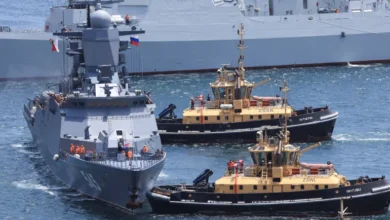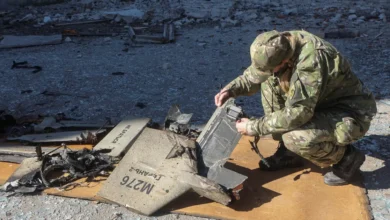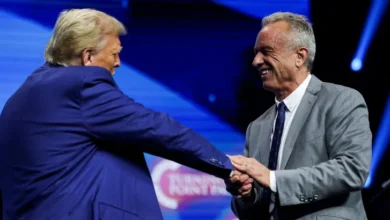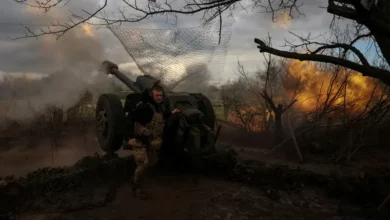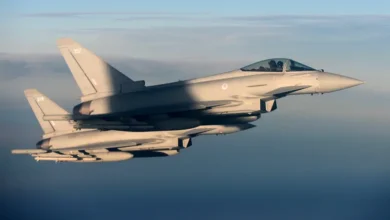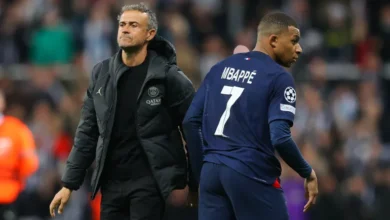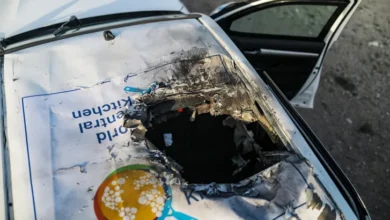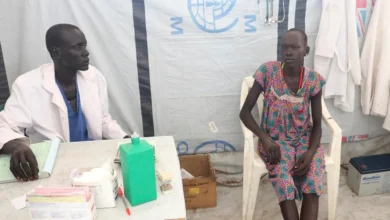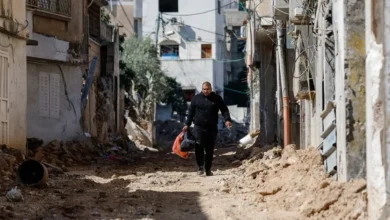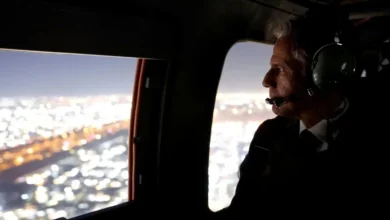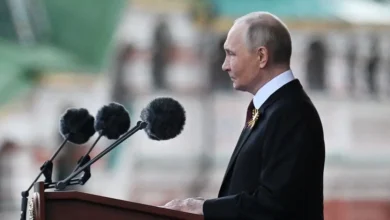This Victory Day, Putin has no victory to celebrate
Maximilian Hess
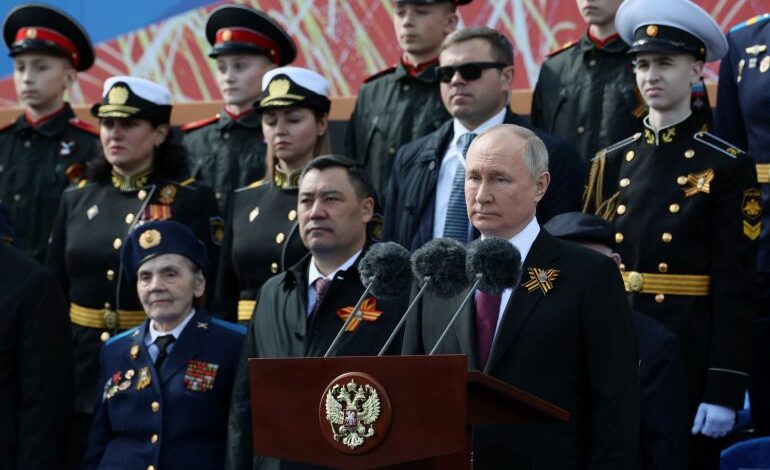
Victory Day was one of the most important celebrations across the Soviet Union. Moscow chose to celebrate the defeat of Nazi Germany in 1945 on May 9, a day later than the West, because it was already past midnight in the Soviet capital when the instrument of surrender was signed in defeated Berlin.
For Russian President Vladimir Putin, Victory Day also stands at the core of the secular religion that he has spent his 23 years in power building – the belief that Russia is both invincible and righteous.But Victory Day celebrations this year highlight how Putin’s cult has laid the groundwork for its own defeat. There are two reasons for this: First, the Russian president cast his war on Ukraine as a continuation of the just fight honoured on Victory Day, but failed to maintain this fallacy; and second, the failure of his unjust and bloody war is allowing Ukraine and other Eastern European countries to reclaim the narrative of victory in World War II.
It cannot be underestimated just how important the cult of Victory Day has been to Putin’s propaganda and the legitimacy of his regime. Over the last 20 years, the Victory Day parade has grown in pomp and scale.
Putin has re-introduced a number of Soviet traditions, including the display of large military hardware at the main Victory Day parades; he has also embraced the so-called “immortal regiment” marches, in which citizens join mass processions with portraits of their ancestors who fought in World War II.
Since 2014, the Kremlin has blended this public memorialisation with propaganda casting Ukraine as the inheritors of the Nazi regime. Even Moscow’s Victory Museum combines the story of the Great Patriotic War – the way Word War II is known in Russia – with that of the conflict in Ukraine.But while there are undoubtedly those in Russia who have been suckered into this narrative, the events of the past year have severely undermined it.
One just has to look at the number of Russians who fled the country over the last year. Estimates show that they are between 500,000 and one million – more than have complied with the mandatory draft that Putin had to institute last September due to the lack of volunteers to fight against “the Nazis” in Ukraine.
The clear lack of enthusiasm among the Russian population for the “special military operation” – as the Kremlin initially called it – has also forced Putin to rely on mercenaries.
The most important battle in the past six months – the one over the besieged city of Bakhmut in Ukraine’s Donetsk region – has been fought by recruits for the private military company Wagner, owned by Yevgeny Prigozhin, also known as “Putin’s cook”.In recent days, Prigozhin made public his disputes with the defence ministry, threatening to withdraw from that fight if his forces were not provided with adequate military supplies. The public squabble was likely little more than an attempt to cover up the fact that both Prigozhin and the army leadership have no grand victory in Bakhmut or elsewhere to present to Putin for Victory Day.
Worse still, in advance of this year’s celebrations, Russia appears unable to secure its own territory. At least six Russian regions cancelled their parades, warning that they could be targets for Ukrainian attacks. Even Moscow’s immortal regiment march – in which Putin himself participated last year – has been called off.
At the start of the full-scale invasion, the Kremlin had claimed that Kyiv would be taken in three days. But 440 days later, Russia’s army and its mercenaries do not appear any closer to victory – even in Bakhmut.
Putin shows no signs of revisiting his strategy, however. He has gone too far and has hinged the legitimacy of his rule on the conflict in Ukraine. He continues to believe that he can wait out Western support for Kyiv. But this waiting game bears its own risks for Putin, as the war in Ukraine erodes his legitimacy.
Elsewhere in the post-Soviet space, a new narrative about Victory Day, one that is truly welded to its original spirit of resisting fascist aggression, is arising. On its eve, Ukrainian President Volodymyr Zelenskyy proposed that Ukraine join other European countries in celebrating victory over Nazism on May 8 and mark Europe Day on May 9.
A larger percentage of the Ukrainian population perished in World War II than Russia’s. Kyiv today has every right to claim the legacy of the fight against fascism in resisting Putin’s invasion, and it has a coalition of international support to rival that of the Allies in the 1940s.Other Eastern European countries, like Poland, the Czech Republic, Slovakia and Bulgaria, have also abandoned communist-era Victory Day celebrations on May 9 and instead mark it on May 8, along with fellow EU states. They, too, are challenging the Kremlin’s attempt to resurrect Soviet-era narratives about the war and downplay their own contributions to defeating Nazism.
This is an important process that is directly challenging not just Putin’s propaganda but also his claim to legitimacy.
In the lead-up to his full-scale invasion, Putin complained that the West had turned the country into an “anti-Russia” and alleged that Ukrainian forces with Western assistance were seeking to eradicate the Russian language, culture and history.
His claims of ethnic cleansing have, of course, turned out to be a lie. The hostile reception Russian-speaking Ukrainians gave to Russian soldiers dismantled this myth. But Putin was right about one thing – that Ukraine is turning into an “anti” Russia, specifically anti-Putinist Russia.
By launching his war in Ukraine and continuing the deadly fight with little regard for Russian lives, Putin laid the groundwork for his own downfall. He is not only losing any claim to the mantle of Victory Day, but handing it to those opposed to his regime.
